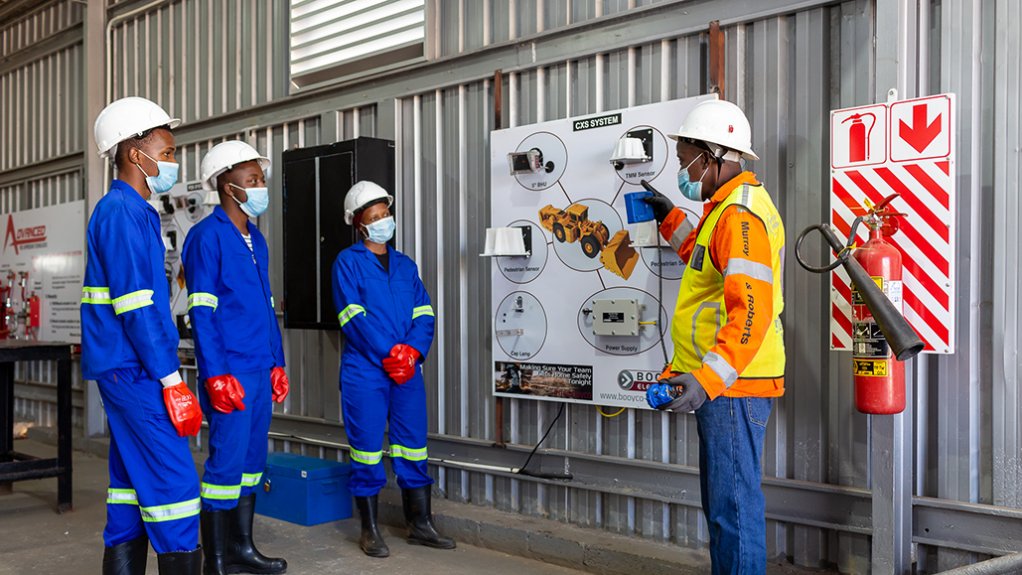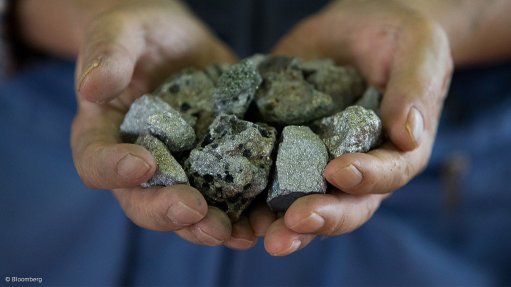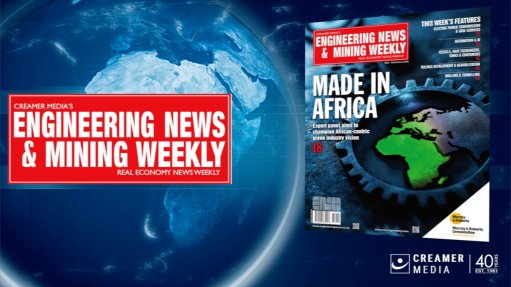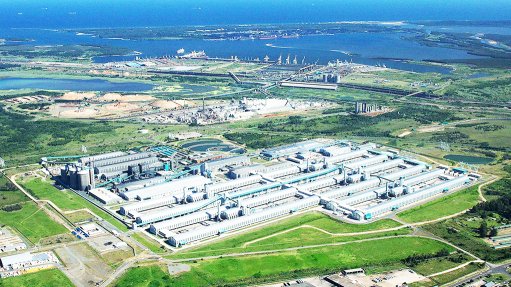Inability to attract youth among challenges facing mining


SERVING THE YOUTH? New entrants into the workforce are questioning the attractiveness of a career in the industry, as there is a distinct gap between what Gen Zs want and what the industry currently offers
Photo by Murray & Roberts Training Academy
Global research indicates that mining, as an industry, has the greatest potential to contribute toward a greener future, and yet it is facing unprecedented recruitment pressures, with advisory services provider BDO stating that new entrants into the workforce are questioning the attractiveness of a career in the industry.
BDO commissioned a survey of school and university students and industry leaders on their career aspirations and their perceptions of the natural resources industry and the types of careers available.
With more than 750 respondents – across Australia, Canada, Latin America, South Africa and the UK – and following global and regional analysis, the research results highlight that Gen Z’s, the generation born between 1997 and 2012, chief concerns are around job security and their desire to save the planet. “Evidently, there is a distinct gap between what Gen Zs want and what the industry currently offers, but it is a gap that can and should be closed,” says BDO.
The firm states that building the right talent pipeline is crucial for future success in the natural resources industry. As a means of assisting the mining industry in ensuring its sustainability, BDO has published a global report to help mining companies secure the next generation of employees.
The report presents a range of talent strategies; lessons learned from other sectors; suggestions of how industry leaders can address Gen Z’s wish list of practical improvements; and steps towards organic changes as clients are facing modern challenges.
BDO notes that, in addition to rectifying negative perceptions about the industry, mining companies must also tackle issues around securing their power supply; implementing an energy transition; maintaining a social licence to operate (SLO); safeguarding the occupational health and safety of employees; preventing environmental disasters such as tailings dam failures; and negating the effects of increasingly frequent severe and extreme weather events.
Other challenges that mining companies face range from the protection of communities and tribal lands, ensuring communities are involved in decision-making processes, participating in stakeholder engagement and management, and absorbing and acting on investor pressure to “do the right thing”, thus embedding SLO and environmental, social and corporate governance (ESG) priorities into their operational strategies.
This shift toward a more SLO-focused approach is especially important because, as the firm points out, South Africa, in particular, has seen continual unrest owing to employees and communities being dissatisfied with mining companies’ level of engagement and community involvement.
“This creates work stoppages and resultant production disruption.”
BDO notes that SLOs, in South Africa, are underpinned by many legal requirements stated in various Acts. As such, mines that shirk their responsibilities often face legal, reputational and financial consequences.
Mining companies must consider the ESG and SLO implications of any decision, says BDO. It cites, for example, the increased use of technology and digitalisation, which increases efficiencies and productivity, but presents a risk of inflaming communities, as mechanised and automated equipment makes certain jobs redundant. “This will mean that miners need to be reskilled to take on different jobs on the mine.”
Further, many financial and lending organisations will, based on investment corporation BlackRock’s stance, move away from investing in projects and businesses that are perceived as unsustainable.
“Businesses that are not taking ESG and sustainability seriously may face difficulty in obtaining funding in the future. This trend is already having an impact,” adds BDO.
More insight into the effects and implications of the ESG trend will be discussed at the Investing in African Mining Indaba, which will be held at the Cape Town International Convention Centre (CTICC) from May 9 to 12.
Notably, the firm will co-host a panel discussion with consultancy Digby Wells on how the mining industry is navigating ESG frameworks at the 121 Mining Investment Cape Town event.
The 121 event, which takes place on May 9 and 10, now forms part of the Mining Indaba. It will be held at the Welgemeend venue, roughly 5 km from the CTICC. There is a shuttle between the two venues, to facilitate travel between the two “premier mining events”.
Comments
Press Office
Announcements
What's On
Subscribe to improve your user experience...
Option 1 (equivalent of R125 a month):
Receive a weekly copy of Creamer Media's Engineering News & Mining Weekly magazine
(print copy for those in South Africa and e-magazine for those outside of South Africa)
Receive daily email newsletters
Access to full search results
Access archive of magazine back copies
Access to Projects in Progress
Access to ONE Research Report of your choice in PDF format
Option 2 (equivalent of R375 a month):
All benefits from Option 1
PLUS
Access to Creamer Media's Research Channel Africa for ALL Research Reports, in PDF format, on various industrial and mining sectors
including Electricity; Water; Energy Transition; Hydrogen; Roads, Rail and Ports; Coal; Gold; Platinum; Battery Metals; etc.
Already a subscriber?
Forgotten your password?
Receive weekly copy of Creamer Media's Engineering News & Mining Weekly magazine (print copy for those in South Africa and e-magazine for those outside of South Africa)
➕
Recieve daily email newsletters
➕
Access to full search results
➕
Access archive of magazine back copies
➕
Access to Projects in Progress
➕
Access to ONE Research Report of your choice in PDF format
RESEARCH CHANNEL AFRICA
R4500 (equivalent of R375 a month)
SUBSCRIBEAll benefits from Option 1
➕
Access to Creamer Media's Research Channel Africa for ALL Research Reports on various industrial and mining sectors, in PDF format, including on:
Electricity
➕
Water
➕
Energy Transition
➕
Hydrogen
➕
Roads, Rail and Ports
➕
Coal
➕
Gold
➕
Platinum
➕
Battery Metals
➕
etc.
Receive all benefits from Option 1 or Option 2 delivered to numerous people at your company
➕
Multiple User names and Passwords for simultaneous log-ins
➕
Intranet integration access to all in your organisation


















